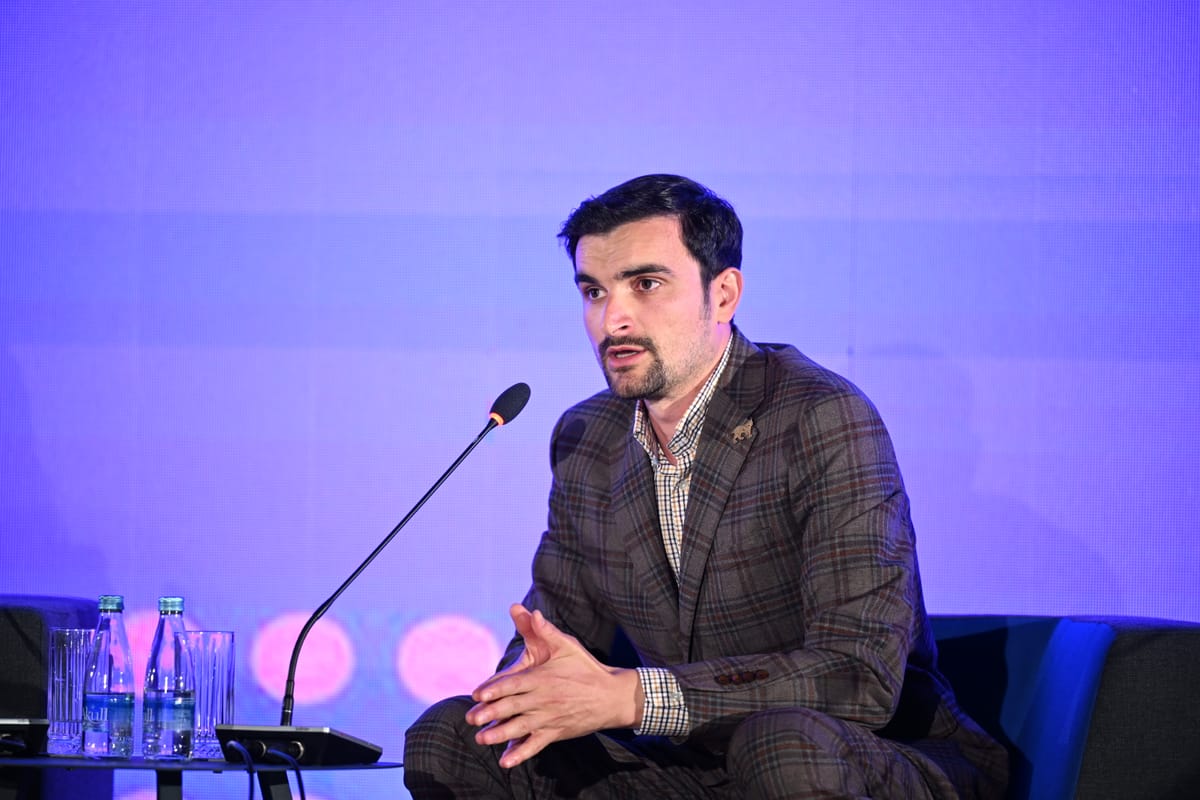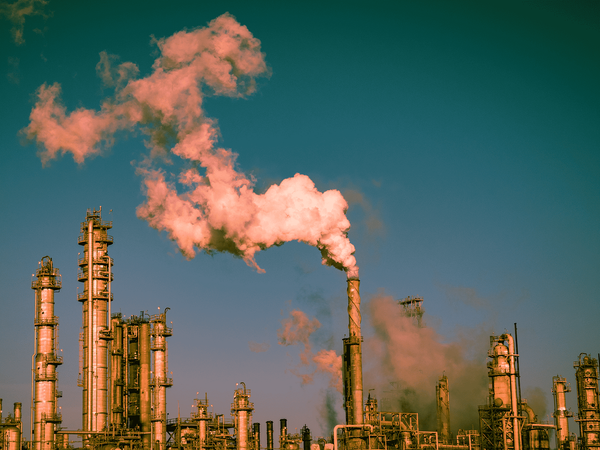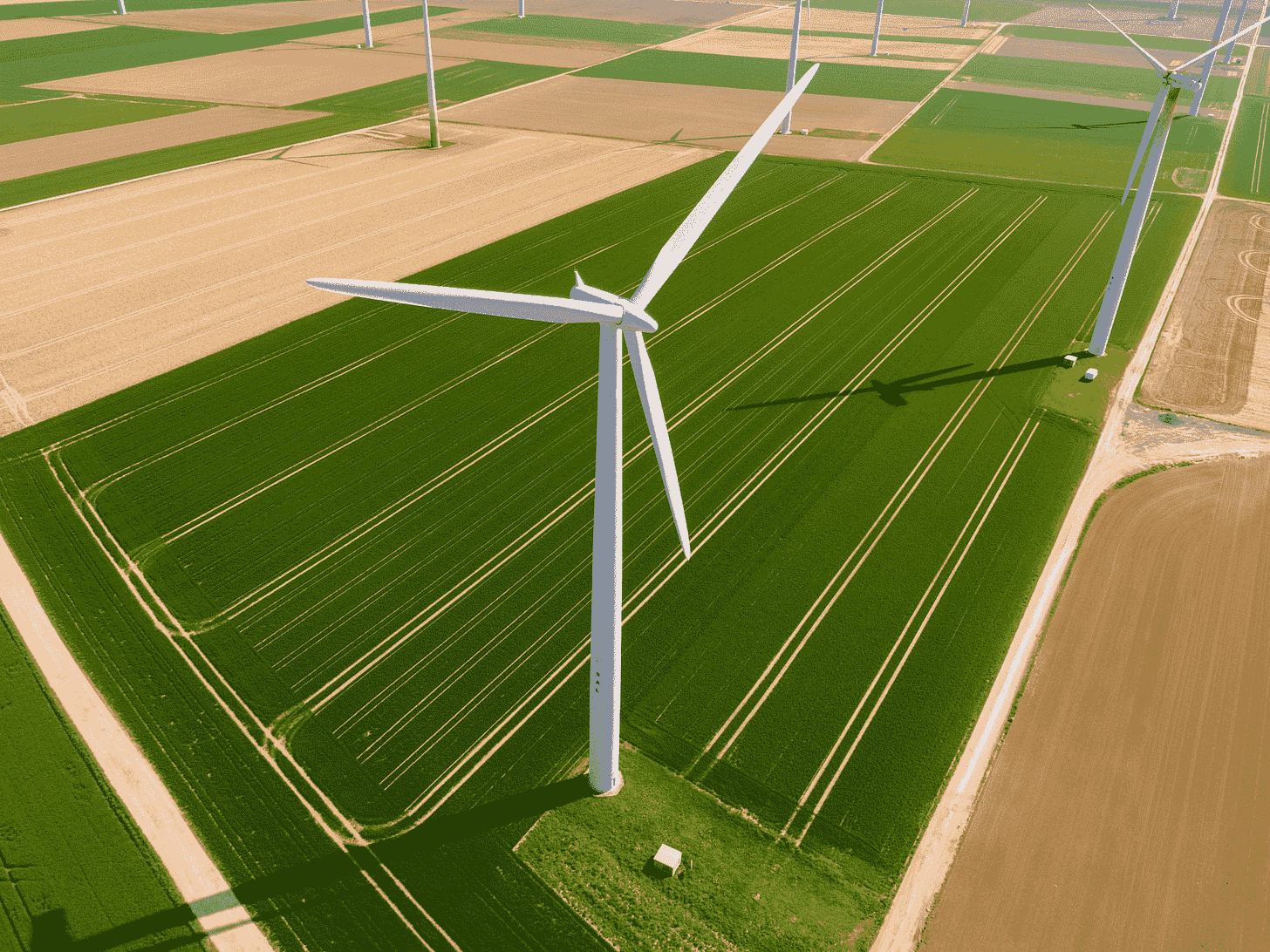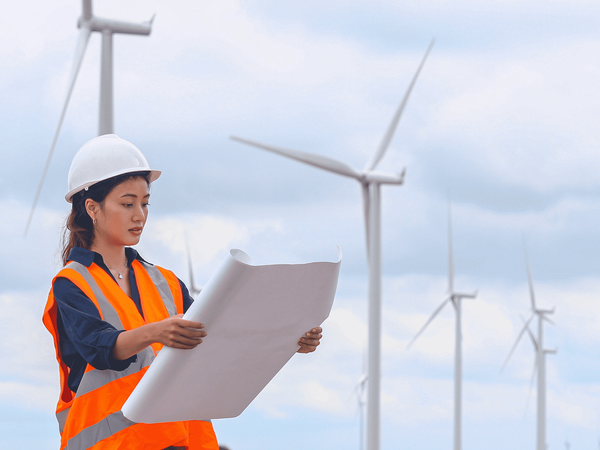Lulzim Baumann: Albania's leading circular economy expert

Lulzim Baumann, the founder and CEO of RecycAl talks about the importance of being sustainable and about his extensive work in the area of recycling and environmental protection.
Lulzim is one of the top five circular economy and waste management experts in Albania. Being an environmental activist, he has worked and created several NGOs to defend his principles. He is a passionate speaker and a teacher who promotes practical ways to clean and respect the environment.
To bring recycling into action, Lulzim founded RecycAl in Albania, a company that aims for a Zero Waste world and advocates for solutions that are environmentally sound, socially justifiable, economically feasible and politically enforceable.
Currently, he is also working for the Association of Kosovo Municipalities in Pristina, Kosovo as an advisor for the circular economy.
How did your journey to sustainability start?
Sustainability for me is not just a way of living— it's a must that we all have to live with because we don’t have other options. If we think about the future, we know that many things are limited, resources are getting depleted and we are harming the planet. We cannot live like that.
Take an example of an empty water bottle. You have few options to deal with that. You can recycle it because you need to put it in the cycle to comply with the principles of the circular economy. Other options include burning it away to get the energy, putting it in a landfill, or putting it in illegal sites without any control, which is the worst.
The problem with all of these options, except recycling, is that even if you burn it in a controlled way, you are getting not only the energy, the ash too. Ash is toxic, and they are going to be in nature for the next hundred years. And now imagine if you burn one million bottles every year. The toxic ash from one million bottles makes a lot of toxic waste, and if we keep it up for a while, imagine what the world will be like after 100 years of toxic ash on Earth.
The same goes for plastics and many polluting substances. We know how easy it is to use plastic— it's light and strong, but we also know the current microplastic problems we have, even though approximately 18% of the plastic worldwide is recycled.
Our law of nature is based on sustainability. Our goal is to ensure that waste is transformed in an environmentally sound way. So for me, the sustainability journey is not a way for us to complain, it's a way for us to take control of our lives and make sure that we and our future generation can live a long and healthy life.
I always say to my students: “Do we want to live? If you want to live a long and healthy life, the environment needs to help you with this.”
Beautiful insight! Now, tell me about your company. How and why did you start it?
I have been an environmental activist for more than a decade. During this time, I got to know many people and participated in several environment-related activities and projects. I also worked on projects that taught me how to manage an NGO from Albania to Germany.
While doing all these, I was (and am still) teaching at a university. Somehow, I got noticed by the media. I guess getting involved in different projects helped it somehow. The media was mostly interested to capture my research and thoughts, and I later realized that much of it was based on theories only.
Then, I decided to take one more step forward and intervene concretely in the system change, and the way was to do it with my own company. That's how RecycAl was born.
RecycAl is based on three pillars: One of them is recyclable materials— we are connected to more than 25 businesses, like 15 schools and airports where we collect the materials.
When it goes to the recycling point, we ensure that the materials are recyclable and are being recycled to produce other products. Unfortunately, not all the plastics are recycled and I was constantly thinking about options for these non-recyclable plastics.
Then the second pillar was born, which fascinates me more because it is better than recycling— it's repair and reuse. And it can be electrical equipment, a window, a door, shoes, clothes or tables or whatever.
The idea is to give it a chance to repair things so people can use it again. This is an amazing thing because first of all, you give the product a chance to be useful again, and other people can still use it, and secondly, you save resources from producing new equipment.
The third pillar that we cannot go and live without is education. As I mentioned, the media and several activities made me think that I must work directly with schools and interact with students in very concrete activities like explaining how recycling works or doing some upcycling models with them. So these are my main focus so far.
Yes, that is an amazing story! Let's have a closer look at the materials. What kind of materials are you collecting right now?
The main focus is plastic but we also collect cans and every other recyclable material that could be recycled in Albania.
I started with papers, which are very challenging because the price for recycled paper does not cover the operational costs and we have to find a way to not fail in the business.
Now, speaking of operation, do you collect the materials yourself and then take them to the recycling point?
Exactly! At the moment it's easy what I do— I organize the collection with the companies, go to the place of the collection myself, mostly cafes and restaurants, and I can say that 90% of the materials are plastic.
After I collect it, I bring it to our center, which is very small until now but there I have all the plastics that I'm getting from different places. We do the sorting again and I would say that is the point when the real selection begins because you always find different things inside.
Then we put it in a big box and bring it to the recycling company. Most of the materials are plastics, which is my main activity.
I bring the materials to the buying company where I also provide documents with full transparency because, for me, it's a very important step to make the process more efficient.
Do you get paid from the recycling centre or for the place where you collect the materials?
Unfortunately, the places where I collect the materials don't pay me and I am not paying them either. It's still not a profitable business.
In the future, I want to cooperate with municipalities because at least they need to make laws and programs which companies pay for collecting.
For example, in Kosovo, in Pristina, the companies pay €10 to €15 per month for the collection of recyclable materials. And it's something we need in Albania. It'll be very helpful for recycling companies and for the importance of our work.
Yes, a very important reflection. Can you go deeper into what are your main challenges at the moment?
Building a company is a big challenge, and in terms of the recycling field, the cost is definitely an issue because it might take a while before it becomes profitable. In many cases, it might not be profitable at all.
So basically, I'm doing this for the community, and the environment, and therefore I expect some support from our government as well. Right now, I am getting some support from two German foundations— one of them is the German Federal Foundation for the Environment and the other is the Heidehof Foundation.
With that and my contribution, we have managed 60% of all of the costs so far but I'm still struggling to cover the other 40%, which means around €100,000. I am still looking to fill the gap and build everything that I have planned, which is to build an education center.
It will be a multifunctional center using a room for education, adding a repair place, giving the possibility for the community to come for free to repair their stuff at the same time, and much more activities. For now, I want to focus on Albania, Kosovo, and Western Balkans.
And at the same time, I also want to build a warehouse. The idea is to do a place where for example if anyone wants to build a house with recyclable materials, they can find all the products they need in one place.
So it's a bit challenging to cover the financial gap but I am optimistic because I'm getting very close to securing some funding with municipalities. They like my project and want to cooperate, and I'm also in connection with several private-sector companies.
What do you think is the future of sustainability?
As I mentioned before, I don't see sustainability as an option, it's a must. Let's put some scenarios— if we consume all our resources, we will end up starving or end up with only rich countries having control of everything and poor countries starting civil wars.
I don't know, maybe we can cause natural catastrophes. I also like to say about a Ph.D. research from a friend of mine on the topic of immigration called climate immigrants. He has already investigated hundreds of millions of people that will need to get away from cities that will be underwater, or because of pollution in the air and water.
Here are other examples in numbers. If people live as the French population does, we will need 2.5 times Earth to cover the consumption of resources. Even worse for the USA because we'll need 4.1 times Earth. So we cannot live like this and we should start thinking about a sustainable future seriously.
To conclude, anything else you would like to add?
Talking about sustainability, let's not forget water. The jeans industry is very well known for them because it is a big business and they consume a lot of water. For example, producing a pair of jeans needs 10,000 liters of water.
And all these things explain to us like basically, where are we going? And there's a lot of data saying that in 2025, half of the world's population will be living in water-stressed areas.
I always say to my students: “Do we want to live? If you want to live a long and healthy life, the environment needs to help you with this.”
It's extremely important to live in a cleaner environment as we found it and it´s not going to happen with just a single person with a flag, it should be a joint effort.
Visit previous interviews with other Green Initiatives.



